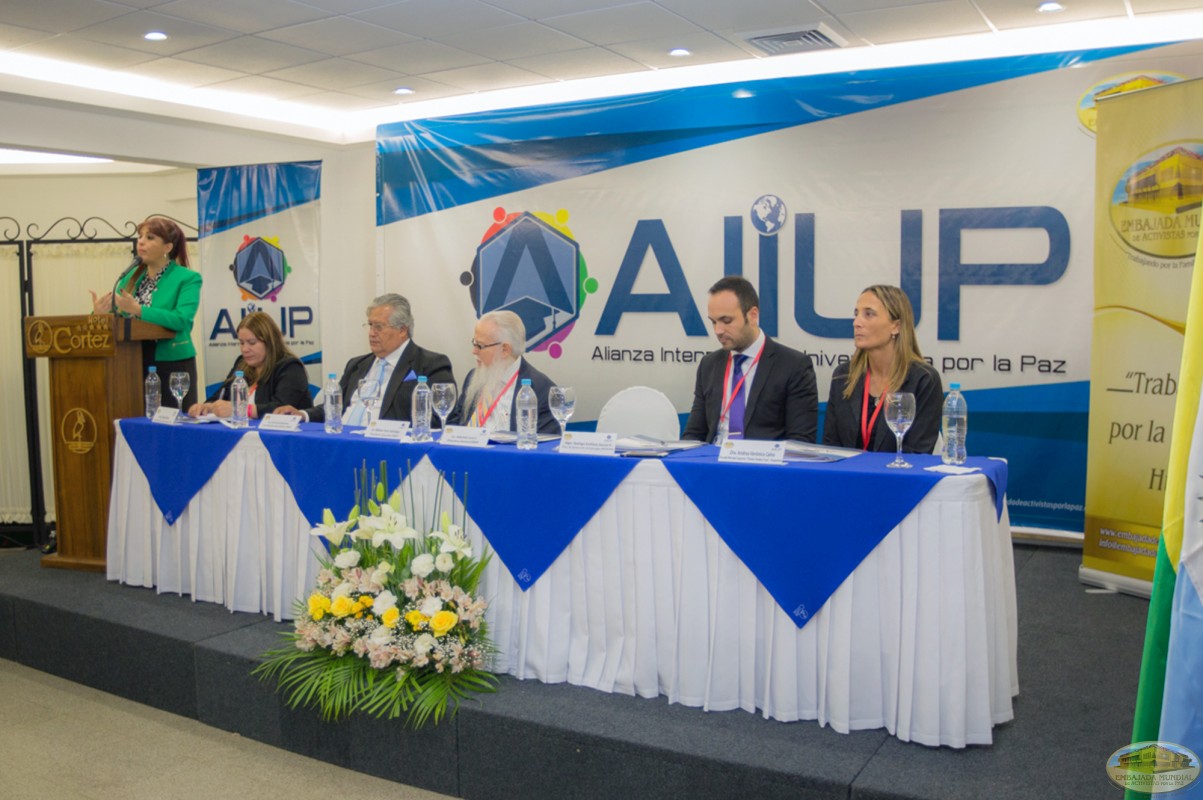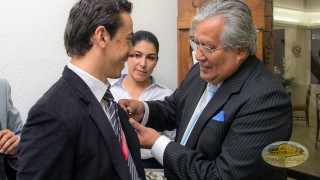Santa Cruz de la Sierra, April 7, 2016
Within the framework of the objectives proposed by the Global Embassy of Activists for Peace through the International Alliance of Universities for Peace - ALIUP, the First International Seminar was held in Bolivia focused on the “Challenges of Higher Education In Human Development and Society - Values in the Development of Professional Competences” on April 7, 2016 in Santa Cruz de la Sierra.
The executive president of the GEAP and the general directorate of the Institution opened the interventions of prominent representatives of the national government and academics from Bolivia, Argentina, Chile and Mexico, pointing out that the construction of a culture of peace must take place through quality education focused on the transforming power of integral human beings, with social responsibility, formed on the basis of human rights and respect for other beliefs, thoughts, and cultures.
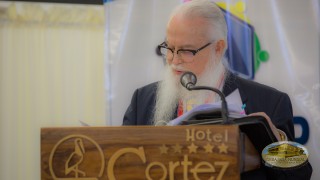
“The transforming power of higher education must concentrate on the formation of a more humane professional, for whom doing and respecting are as important as knowing. This new scenario also calls on the teacher to strengthen their role as an axiological manager carrying the banner of freedom, equality, social justice and other constitutional rights and guarantees.” Dr. William Soto
“In this case having the presence of Bolivian authorities shows us the commitment of the nation to promote values and human rights through higher education, not as an education based on the transmission of knowledge or information, but under the main objective which must be to form more humane beings.” Gabriela Lara
In this sense, as members of the executive and the legislature in that country, the deputy minister of education and the secretary of the education, science, technology and sport committee of the Senate of the Republic, agreed that in addition to a chair for peace, public policies linked to the granting of a good life are needed, which constitutions such as Bolivia have recognized since 2009.
“To generate a culture of peace, to generate a process of change, it is necessary that people who have been relegated for a long time participate. The simple fact of participation is a vital and fundamental element for the intercultural construction.” Dr. Jiovanny Samanamud
“We are on the right path, we are in a process of change, a modification of human behavior that is born first in the spirit of the people and not in the level of knowledge that one has, we believe that we must have more heart and not so much brain and intelligence, because the intelligent have also destroyed this world.” Dr. Ciro Zabala
In that sense, the Executive Committee of Bolivian Universities (CEUB) also expressed their interest in the Bolivian University system actively participating in the ALIUP; and at the same time indicated that they will present to the National Conference of Universities, the highest governing body of the system, the agreement of the International Alliance of Universities for Peace in order to introduce the Chair for Peace in its curricular system.
“We believe that inculcating peace has to come from our children, as parents, as brothers and sisters, to inculcate peace so that we already have that culture in the university and we can strengthen it with this chair for peace, which is our commitment.” Jesus Gustavo Rojas.
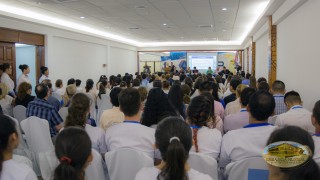
The topics on the construction of a culture of peace that focuses on transformational leadership and assurance of the development of professional competencies of the XXI Century was distributed into three simultaneous work tables. In them, the participants made contributions for the construction of a Chair for Peace. Then in plenary, the moderator of each table socialized the results of the group work and in this way, the new contributions are a fundamental element for the achievement of the objectives that the ALIUP has proposed at the international level and for the benefit of humanity.
“The idea is to break old paradigms, old structures that accompanied society and that are providing spaces in which you can talk, discuss equal to equal. I can sit down with any of the countries and somehow solve problems as fundamental as human experiences themselves.” Dr. Cristian Barzola, Rector of the Teacher Training Institute Tomas Godoy Cruz - Argentina
“The experiential knowledge is the most important part of education, the experience of knowledge is what we are and why we exist, it is what universities are and will be.” Dr. Carlos Arturo Luna Gomez, Rector Universidad IVES - Mexico
“It is not only education, it is health, it is the political sphere, the legal sphere; there are legal structures throughout Latin America that respond to 100 years ago or further back and have not changed. Making a culture of peace, is to precisely understand that this is a systemic problem, of all these other social spheres, in such a way that the other perspectives, the other dimensions and fields are not disengaged.” Dr. Manuel Angel Perez, Vice rector Universidad Católica Silva Henríquez - Chile
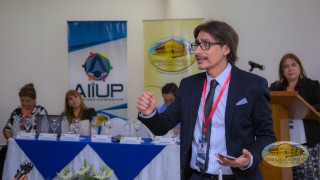
Knowing what society needs and thinks is an essential requirement for understanding peace as an experience. Reconciling differences in consensus and generating processes of change is part of the integrating role of the university as an axis of social transformation.
